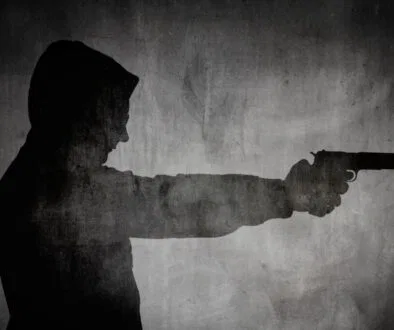What Is A CSI Or Crime Scene Investigator? An Overview
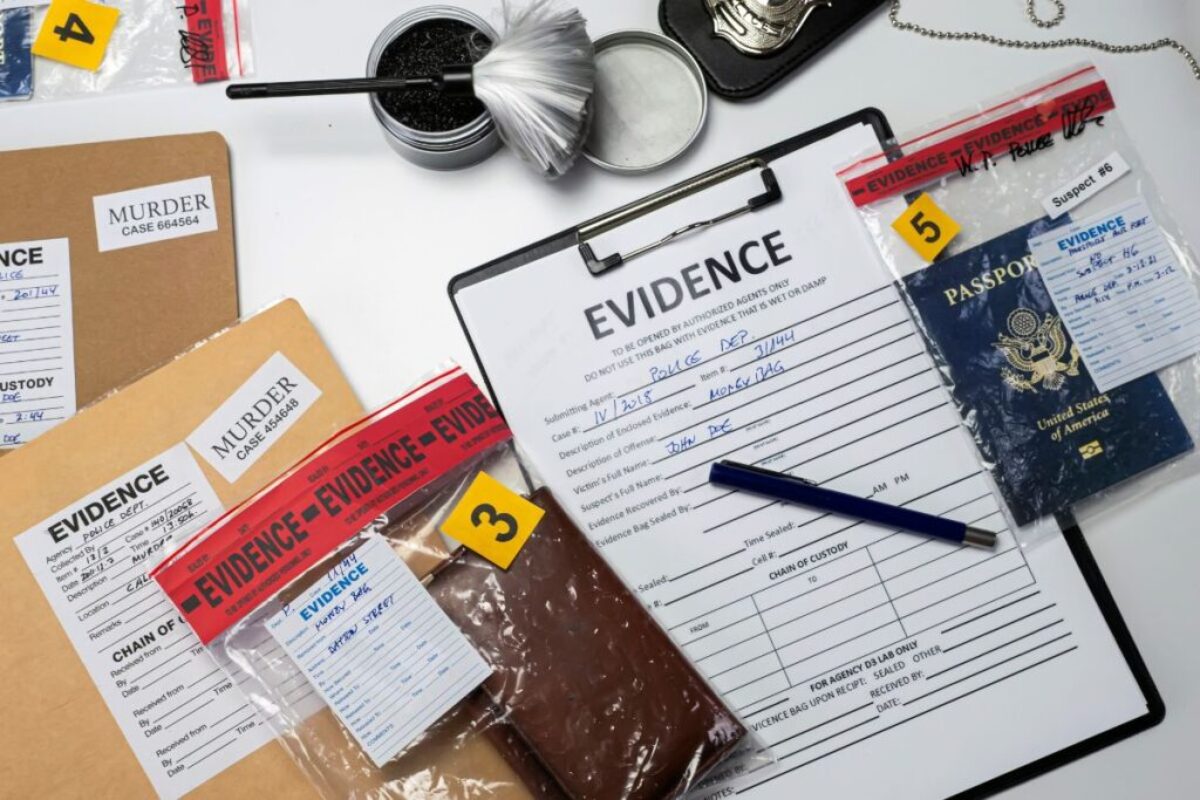
Published June 4, 2024
Have you ever wondered who ensures justice is served behind the scenes? Crime Scene Investigators (CSIs) are the unsung heroes of the criminal justice system. They are the vital link between law enforcement and forensic science. They painstakingly gather, preserve, and analyze physical evidence from crime scenes. Without their meticulous work, countless crimes could go unsolved.
This article offers an in-depth look into the world of CSIs. Let’s learn what is a CSI is all about, their responsibilities, necessary skills, and educational pathways.
What Is A CSI?
If you’ve been watching crime movies or series, you likely know what the CSI meaning entails. A Crime Scene Investigator is a skilled professional. They undergo training to collect, preserve, and analyze physical evidence from crime scenes. Law enforcement agencies, government bodies, or civilian crime labs typically employ them. They use science and advanced technology to process material evidence. Their work is crucial in aiding the investigative and judicial processes of solving crimes.
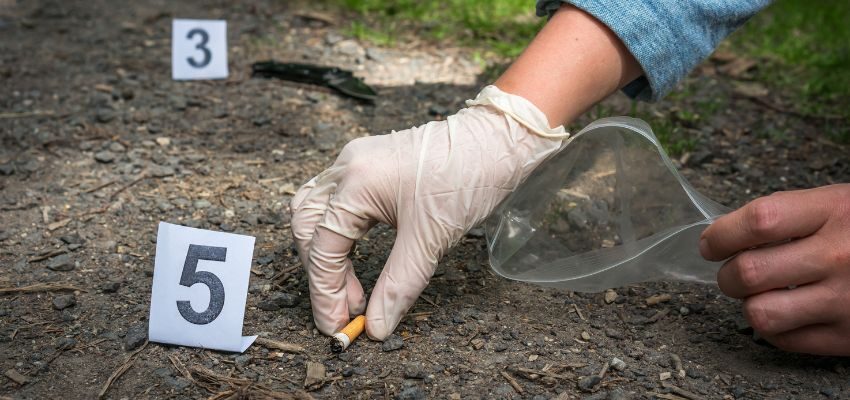
What Does A Crime Scene Investigator Do?
The main responsibilities of a Crime Scene Investigator (CSI) include:
- Securing crime scenes prevents evidence contamination. This is done by setting boundaries and controlling access.
- Identify and mark critical areas of interest, such as potential entry and exit points. It also involves documenting any disturbances or unusual findings.
- Collecting, preserving, and storing physical evidence such as fingerprints, blood samples, and trace materials requires meticulous care to ensure integrity.
- Maintain detailed logs and reports documenting each step of the investigation, including the time and method of evidence collection.
- Utilize scientific equipment to gather and analyze evidence. This includes DNA sequencers, chemical analyzers, and digital forensic tools.
- Testify in court about collected evidence. It involves giving expert opinions. You also explain the methods used in gathering and analyzing data.
- Transport physical evidence to forensic laboratories. It involves strict adherence to chain-of-custody protocols, upholding the evidence’s legal validity.
What Is A CSI Responsible For?
A Crime Scene Investigator (CSI) carefully collects physical evidence from crime scenes. They also document and preserve it. The primary responsibilities include:
- Thorough evaluation of crime scenes to avoid compromising evidence. They ensure every potential clue is carefully examined and preserved.
- Develop effective evidence collection plans by selecting the best methods and tools for different types of evidence, including fingerprints, DNA, and physical objects.
- Accurate documentation of all gathered evidence through detailed notes, photographs, and sketches. The goal is to create a thorough record for future reference and analysis.
- Maintain the proper handling, preservation, and transportation of evidence. It also involves maintaining the chain of custody. This means using the appropriate containers and labels to prevent contamination or loss.
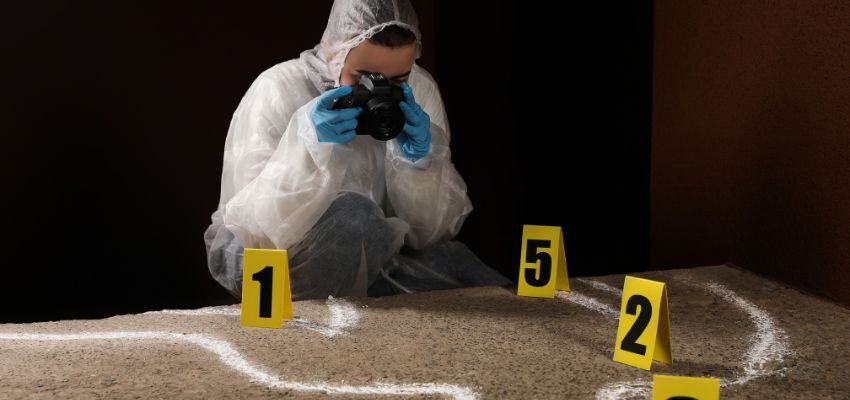
Skills A CSI Should Have
To excel as a Crime Scene Investigator (CSI), one must have a diverse skill set and essential characteristics:
- Keen observational skills. CSIs must identify and collect negligible evidence, such as hair fibers, fingerprints, or trace DNA. Attention to detail is critical to ensure no potential evidence is overlooked at a crime scene.
- Technical expertise. Proficiency with scientific equipment and forensic methods is vital. CSIs must be familiar with tools like microscopes, analysis kits, and forensics software. These tools allow CSIs to analyze evidence well and draw conclusions.
- Strong communication skills. Effective team collaboration and courtroom testimony require clear and concise communication. CSIs must share their findings with law enforcement officers, legal teams, and judges, often under high-pressure situations.
- Emotional resilience. The ability to cope with potentially gruesome and disturbing crime scenes is essential. CSIs frequently encounter unsettling and traumatic scenes, requiring emotional resilience and mental fortitude.
- Organizational skills. It’s crucial to manage evidence and documentation meticulously. Detailed notes, photographs, and chain-of-custody reports ensure the integrity of the inquiry and ensuing legal proceedings.
- Commitment to continuous learning. The field of forensic science is constantly evolving. There are advancements in techniques, equipment, and methodologies. CSIs must stay informed and adapt to remain effective in their roles.
A CSI can help solve crimes and bring justice to victims and their families by honing these skills and traits.
Educational Requirements
To become a crime scene investigator, you generally need a bachelor’s degree. It can be in criminal justice or forensic science. Some roles may accept an associate’s degree or a certificate program. Specialized areas like ballistics or DNA analysis often demand additional education. You may also need continuous in-service training. This is in addition to state licensure or specialized certification. The need depends on the specific job and location.
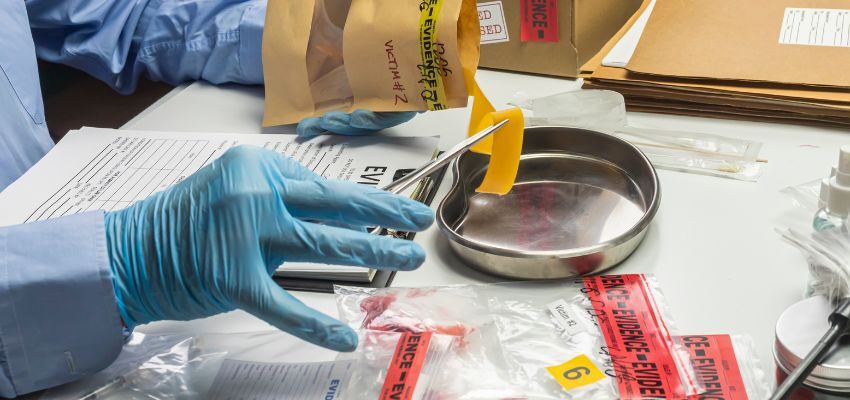
The Essential Role Of Crime Scene Investigators
Now that you understand what is a CSI, choosing a profession as a Crime Scene Investigator can be challenging and rewarding. This role demands scientific expertise, keen attention to detail, and emotional resilience. It’s for those dedicated to the careful pursuit of justice and provides a rare chance to impact the justice system significantly.
Advertisement
Save 90% Per Minute On Jail Calls With Us
US prisons charge lots of money per minute for long distance inmate calls. The loved ones of inmates are left to pay this bill. For a ten minute phone call you may find yourself paying over one hundred dollars. With SecurTel, you can reduce this charge to a fraction of the cost and only pay the local calling rate. Make calls from across the US or internationally for the local rate and help your family stay connected during a difficult time. Learn more about how to sign up for inmate calls here.

This Content Is Fact Checked
We have conducted thorough fact-checking on this content in-house. Get detailed insights into our website’s editorial standards by clicking here.

About The Author
Hello! I’m Corinne, a nursing graduate from Riverside College with a flair for writing. Thanks to the thorough research into each piece, my work stands out for its quality and accuracy. I believe in the power of storytelling to connect with people from all walks of life.


